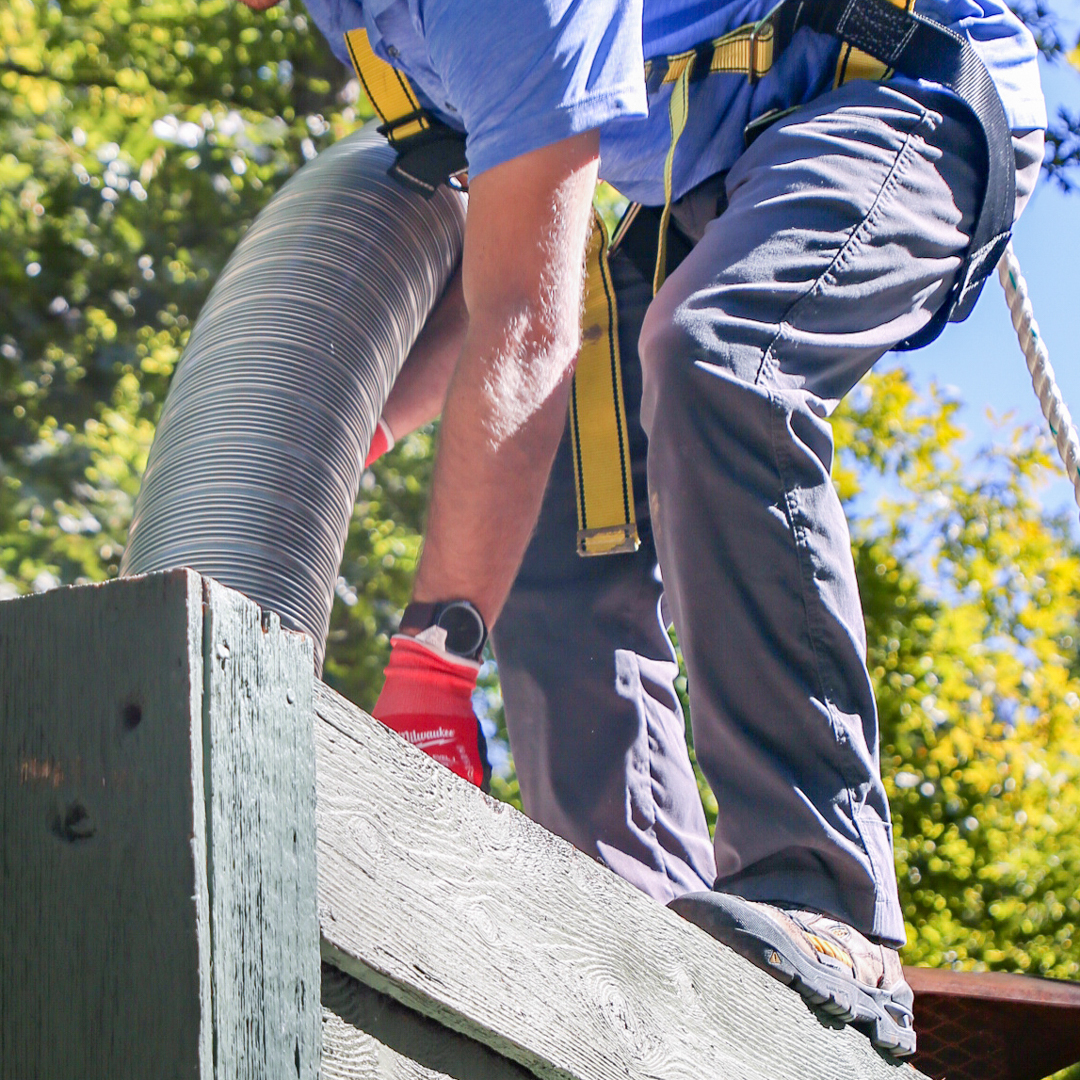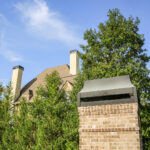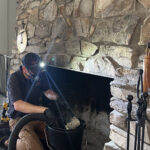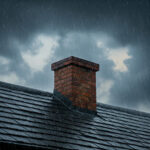Do I Need to Insulate My Chimney Liner? Yes, And Here’s Why!
If you have a chimney with a metal liner — or you’re considering getting one — you’ve probably read that you should get the liner insulated. But is that really necessary? The short answer is absolutely! Insulating the liner is essential to ensure your chimney performs efficiently. Here’s why insulating the liner is important and what can happen if you don’t.
What is a Chimney Liner? 
If your home is over 70, your chimney may not have a liner. Chimney liners were not required by building codes until the 1950s. So, the chimney liner is a tube (usually made of stainless steel or clay in older homes) that fits inside the flue to protect the chimney walls against heat and corrosion and provide improved ventilation.
Liners must be correctly fitted to whatever heating appliance you use, such as a wood stove, fireplace, or boiler. Liners are important if the chimney is older and is made from bricks and mortar because those materials can degrade over time, and that degradation speeds up without a liner.
Why Insulate the Liner?
Many homeowners think the liner is enough, but it really needs to be insulated, too. Insulation enhances the liner’s performance and helps maintain proper flue temperatures. When gases exit the fireplace or heating appliance, they’re hot and need to stay hot all the way up the flue. If the liner isn’t insulated, the gasses’ temperature will drop too quickly, leading to a number of problems.
Here’s why liner insulation is so important.
Improved Draft
Warm air rises — but when gasses cool too quickly, the draft suffers. Poor draft means your fireplace or stove won’t vent properly, and this can lead to back puffing or a situation where smoke flows back into the house. Insulating the liner helps the flue retain heat, ensuring a stronger, more reliable draft.
Reduced Creosote Buildup
according to the National Fire Protection Association, the leading factor contributing to home heating fires (30%) was mainly due to a dirty chimney. Creosote is the most common cause of chimney blockages, and it’s vital that you keep it to a minimum.
By keeping the flue liner warm, insulation significantly reduces the amount of creosote that builds up, helping your chimney to operate more efficiently.
Condensation Control
Gas appliances, especially high-efficiency models, produce a lot of moisture. If the chimney liner isn’t insulated, that moisture can condense on the inside walls, leading to corrosion.
Moisture can also seep into the surrounding masonry, freeze, and cause cracks. Insulation acts as a thermal barrier, helping to prevent this costly damage.
Better Energy Efficiency
Fireplaces generally aren’t the best for home heating because much of the heat goes up the chimney. However, insulating the liner keeps the heat where it belongs — in the house. This means whether you’re using a fireplace, a wood stove, or other appliance, it’ll operate more efficiently with an insulated liner.
Fire Safety
Uninsulated liners can allow excessive heat to blast against the chimney walls. This can be a disaster if you have significant creosote buildup because that substance is highly flammable. The insulation contains the heat and moves out of the chimney more quickly, reducing the chance of a fire starting in your attic, walls, or roof. This is even more important if you have an older home with extremely tight clearances.
Skipping getting the liner insulated can lead to chronic smoke issues and poor heating performance. Also, you’ll have to clean the chimney more regularly to keep the creosote from buildup. Lastly, an uninsulated liner can cause the chimney to wear out more quickly, leading to costly repairs or rebuilds.
Whether you need a chimney liner insulated, cleaning, repairs, inspection, or anything else, you can count on the pros at Chimney Solutions in Chattanooga. We’re committed to the highest level of fireplace services. Our technicians are highly trained and certified by the National Chimney Safety Institute of America. Call us today for an appointment!




